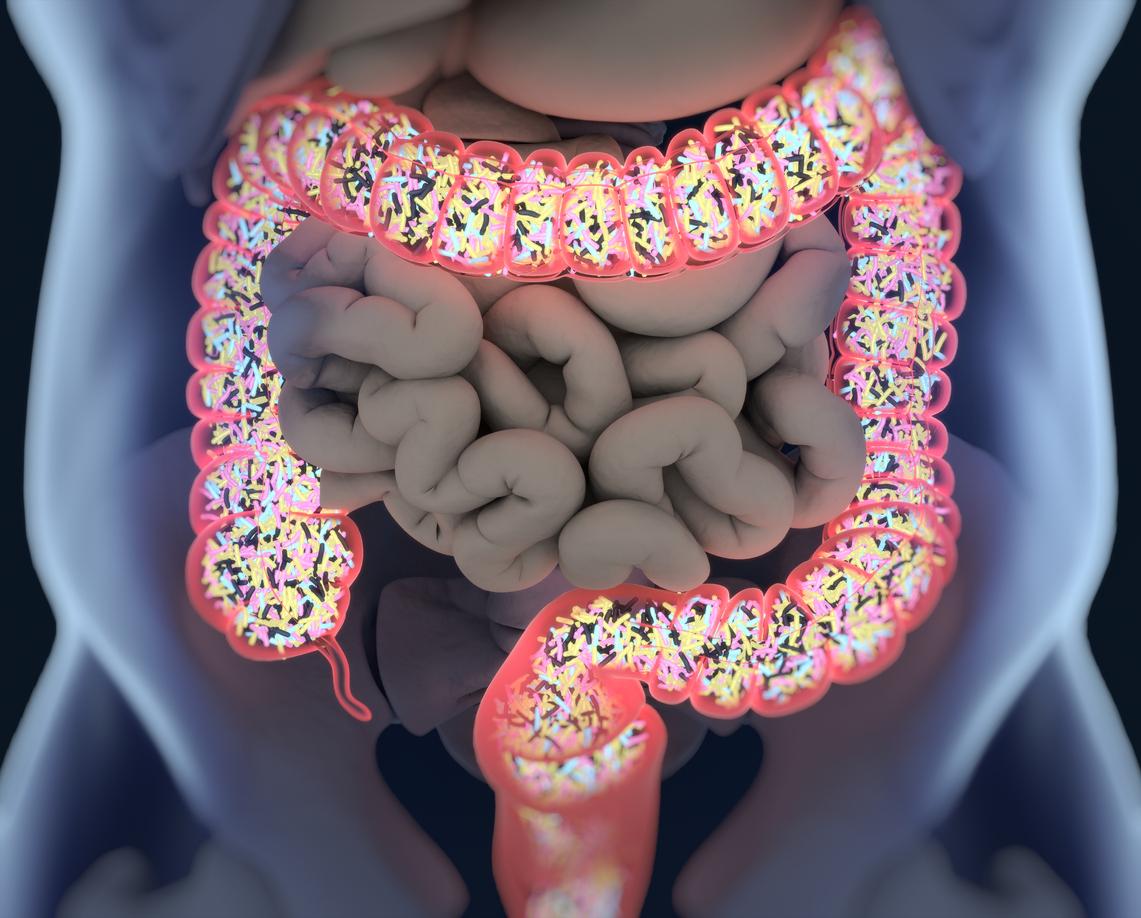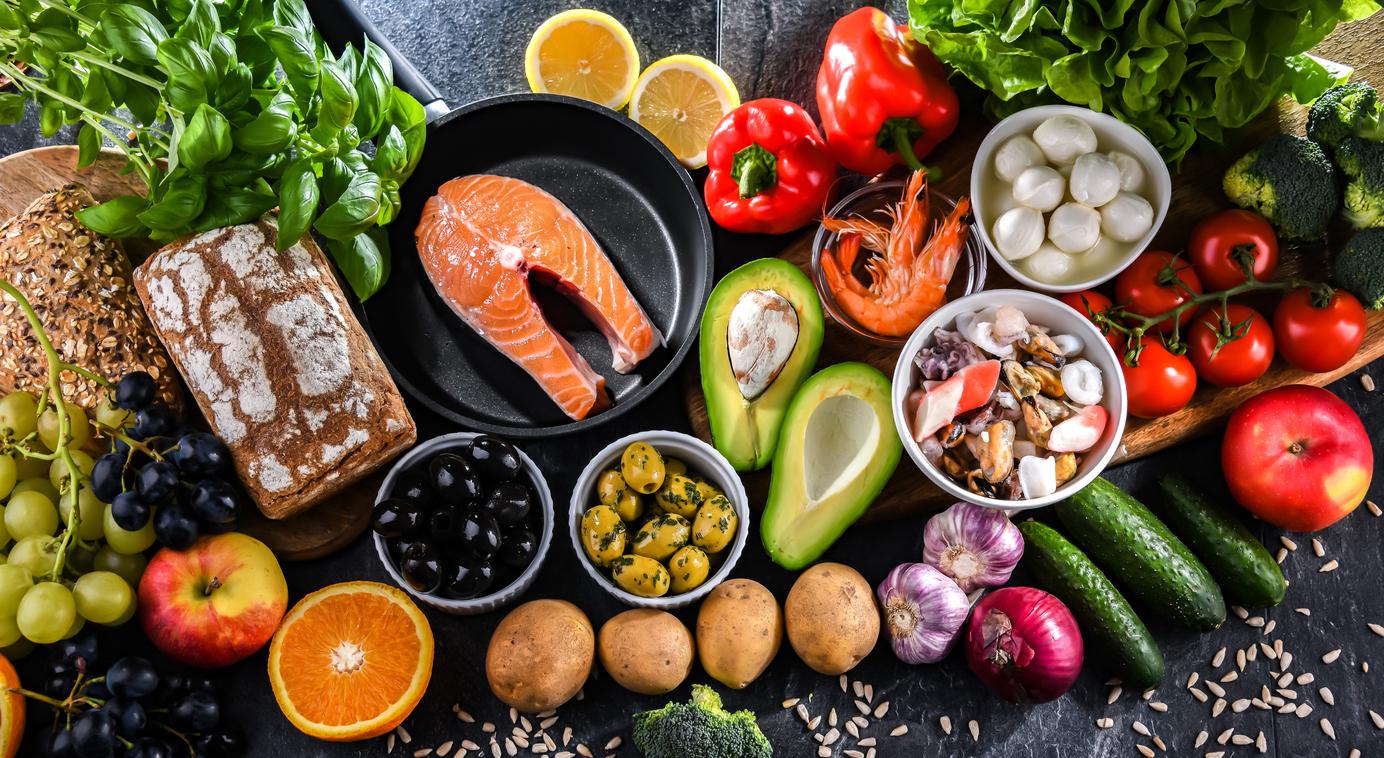The intestinal microbiota can change, but to avoid imbalances, certain foods are recommended.

- The intestinal microbiota or “intestinal flora” is a group of microorganisms living in the digestive tract.
- The intestinal microbiota can be disrupted and lead to symptoms.
- Certain foods contribute to the good health of the intestinal flora.
The gut microbiota, also known as “gut flora” is a collection of microorganisms – mainly bacteria – that live in our digestive tract. There are over 400 species and over 100 trillion bacteria in the gut microbiota. The gut flora, just like the intestines, plays an important role in the digestive process.
However, sometimes the microbiota becomes unbalanced, leading to symptoms such as gas, bloating, constipation or diarrhea, or even chronic fatigue, food intolerances or even chronic infections.
Certain foods contribute to the good health of your intestinal flora. Let’s take stock.
Red fruits and legumes are rich in fiber
Red fruits, especially raspberries, are high in fiber, which promotes healthy bowel function and reduces the risk of constipation.
Legumes (lentils, chickpeas, dried beans) are also essential for good quality intestinal flora because they provide the fibers that the microbiota needs to function properly, they feed the good bacteria.
Yogurts, sauerkraut, black and red olives contain many probiotics
Yogurts have a probiotic effect, good for the intestinal immune system. One yogurt contains 10 million live bacteria per gram. You can also drink kefir, which is rich in bacteria and yeast.
Similarly, raw sauerkraut contains lactic bacteria, which are probiotics. They help regenerate the intestinal flora and strengthen the immune system.
The same goes for black and red olives, which are rich in probiotics.
Banana, rich in fructo-oligosaccharides
A sports food, bananas are rich in fructo-oligosaccharides (FOS) which stimulate the intestinal microbiota. They contribute to the development of probiotics.
Miso, rich in good bacteria
Consuming miso, a traditional Japanese food in the form of fermented paste, also contributes to the health of the intestinal flora. It promotes digestion and reduces gas. In addition, miso is a powerful anti-oxidant that helps reduce the risk of cancer.















